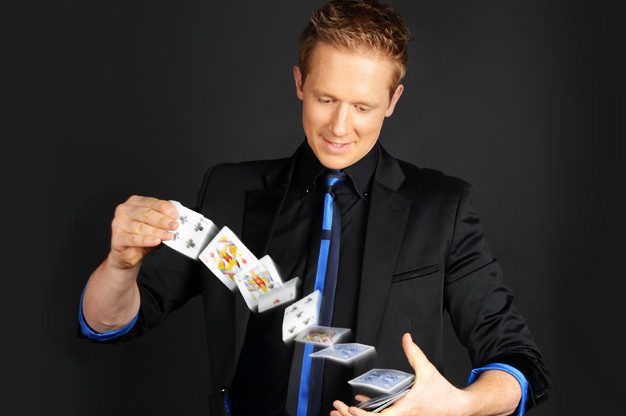Everything You Imagine Is Real: Facts, Predictions, and Innovation
“Everything you imagine is real”
I was looking at the back of a t-shirt in yoga class. The girl wearing it was a class “regular”, and confident enough to put her mat down toward the front of the studio. (I hang in the back-middle).
So it got me thinking about what’s real and imagined, particularly in a technology age when it’s tough to know the difference.
Here’s an example.
I was leaving McGurk’s, a popular Irish bar at about 10pm on St. Patrick’s Day 2018. There was a line to get in, and other people hanging out in front. A guy in his late 20s was arguing with two St. Louis police officers about getting kicked out of the bar.
“I wanna talk to the owner- this is BS!”
His girlfriend chimed in.
“Just ignore him- he’s drunk.”
Apparently, her love for him only goes so far. Unconditional love was only in his imagination.
Or Kim, the lady who walks her dog Lilo in my neighbor. As we walked toward each other, she told a cell phone caller. “Hey, hey- I’ve got to let you go.”
“That was my sister. She’s getting ready to board a flight and already had two screwdrivers… says that she’s pretty buzzed.”
The current time was 7:15am.
“She calls me like four times a day- it’s annoying.”
The sister thinks that Kim enjoys talking to her four times a day- which is an illusion.
Wikipedia defines futurists as people who “attempt to systematically explore predictions and possibilities about the future and how they can emerge from the present.” They even have a professional association– who knew?
So, can futurists really make an impact? It turns out that they can.
Join Conference Room: An accounting, personal finance, and humor/ short stories. Blog posts and video.
Predicting the Pandemic- In 2010
Jane McGonigal is a futurist whose primary occupation is created video games. She also runs trials and performs studies on futurist topics.
One of McGonigal’s studies is to put on social simulations involving thousands of people. As you’ll hear in this podcast (starting at about 16 minutes), more than 20,000 gamers participated in a simulation in 2010. She created a fictional social network, and people shared messages and photos- just as they would on Facebook or Twitter.
The difference is that the participants imagine that it’s 10 years into the future. Here are the scenarios (“cascading global crises”) that participants were asked to imagine for the year 2020:
- A respiratory pandemic starts in China
- A conspiracy theory group, called Citizen X, starts to put out misinformation about the pandemic. This creates confusion about whether or not the government is trustworthy
- The US West Coast starts to experience wildfires, due to climate change
The group was asked: How would they feel, what would they do, and how would they try to help others?
They were given more specifics. If, for example, you were asked to quarantine for weeks, under what conditions would you not comply with the rules?
Again, this simulation took place in 2010…
When the actual pandemic occurred in 2020, McGonigal started hearing from the 2010 participants. Many thought that, because they had imagined what they would do ten years before, they were more prepared- and less anxious- when the pandemic happened.
Which is the whole point. By using imagination about events good and bad, you’re better prepared to respond. Imagination prepared individuals for what became real.
There are other instances when we need imagination.
Go to Accounting Accidentally for 600+ blog posts and 450+ You Tube videos on accounting, personal finance, and humor/short stories.
If you image it, someone may just build it
Senior year of college, I took a “Capstone” course. The class was supposed to bring together concepts that I learned in Business school into a single course. Now, part of the problem was that my class attendance was….“spotty”.
The bigger issue was something the professor said. It was too bad that we were graduating into the job market, he said, because most of the great innovations in business and society had already happened.
It was spring of 1985.
Microsoft went public a year later. As a friend of mine says, some people are “always certain and rarely right.”
The world gives us geniuses- like Edison or Steve Jobs – who are so creative that they come up with innovations that filled a future need. No one knew that they needed a light bulb or personal computer, but these inventors created them.
Here’s what Edison achieved:
“By the time he died on October 18, 1931, Thomas Edison had amassed a record 1,093 patents: 389 for electric light and power, 195 for the phonograph, 150 for the telegraph, 141 for storage batteries and 34 for the telephone.”
If you can image it, someone may eventually help you build it.
Imagination drives innovation
I watch CNBC each day, usually when I’m getting ready in the morning. I’m particularly interested when company earnings are announced, and guest analysts talk about a company’s future prospects.
Recently, an analyst said that he expected Apple to underperform the broad market over the next 10 years, in part because so many people worldwide already own an iPhone- over 1 billion active phones in use.
The other analysts disagreed. This narrow view doesn’t value all the innovation that Apple could roll out over the next decade. Their ability to innovate differentiates Apple for the competition- and they stand out.
Always bet on imagination.
Food for thought.
Ken
Image: Martin John- Magician (CC BY 2.0)

